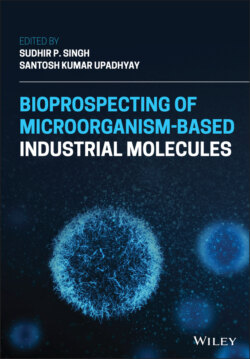Читать книгу Bioprospecting of Microorganism-Based Industrial Molecules - Группа авторов - Страница 74
4.4.4.2 Fucoidan
ОглавлениеFucoidans are heteropolysaccharides containing L‐fucose sugar and sulfate ester groups [10]. They are mostly derived from the brown seaweed. In some seaweeds, along with fucose sugar, other sugars such as glucose, galactose, mannose, xylose, and glucuronic acid (GlcA) have also been reported [125]. The application of fucoidans in the cosmetic industry has been widely investigated. Numerous study has been carried on the inhibitory aspects of topical application of fucoidans on the skin against aging and photo‐damaged effects [93, 94, 115]. Fucoidans are known to enhance multiplication skin fibroblast and augment the retention of native collagen [95, 126]. Fucoidans are known to protect the elastic fiber network in human dermal cells, and hence they are used as a natural whitening agent in lotion and skin creams to reduce age spot and increased radiance, increase smooth texture skin [96, 127]. In human skin, melanocytes cells are known to impart the skin complexion. The pigment melanin is produced and stored inside the melanocytes and is primarily obtained from amino acid L‐tyrosine, which is converted to dopaquinone by the action of the enzyme tyrosinase. Hence, suppression of tyrosinase‐related proteins plays an important role in anti‐melanogenesis and skin whitening [128]. In this regard, several studies have demonstrated the inhibition of enzyme tyrosinase, antioxidant activity, and anti‐melanogenesis of fucoidan fraction from various macroalgae [96, 128, 129]. Furthermore, the property of fucoidans to readily solubilize in water makes it attractive to combine into several ranges of cosmetic formulations such as lotions, creams, ointments, and other beauty products.
